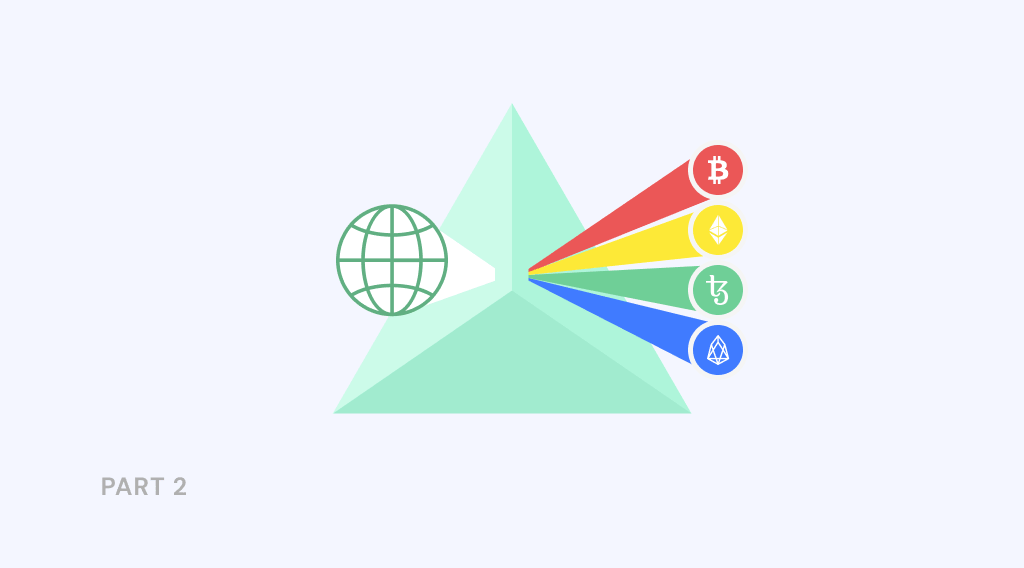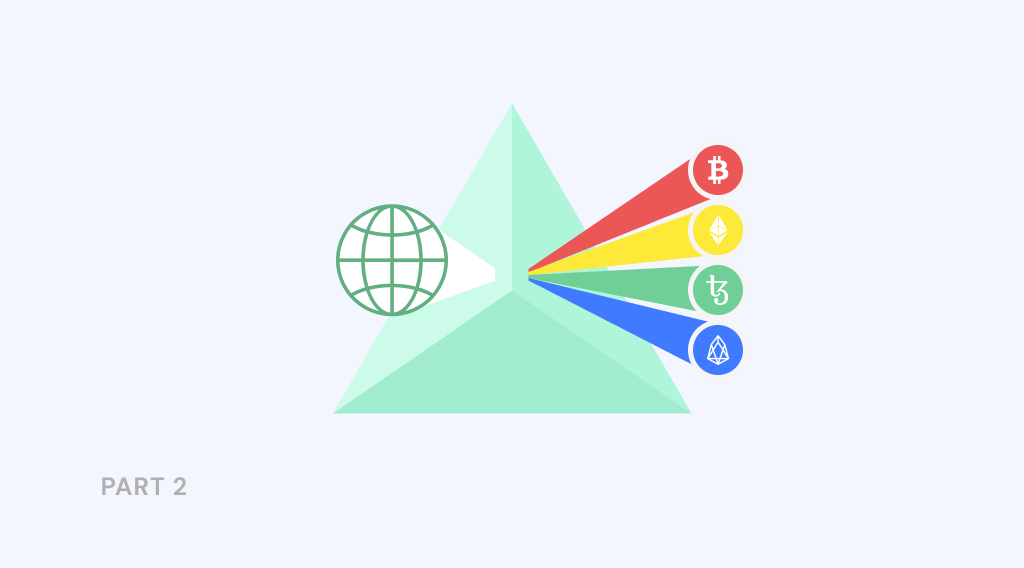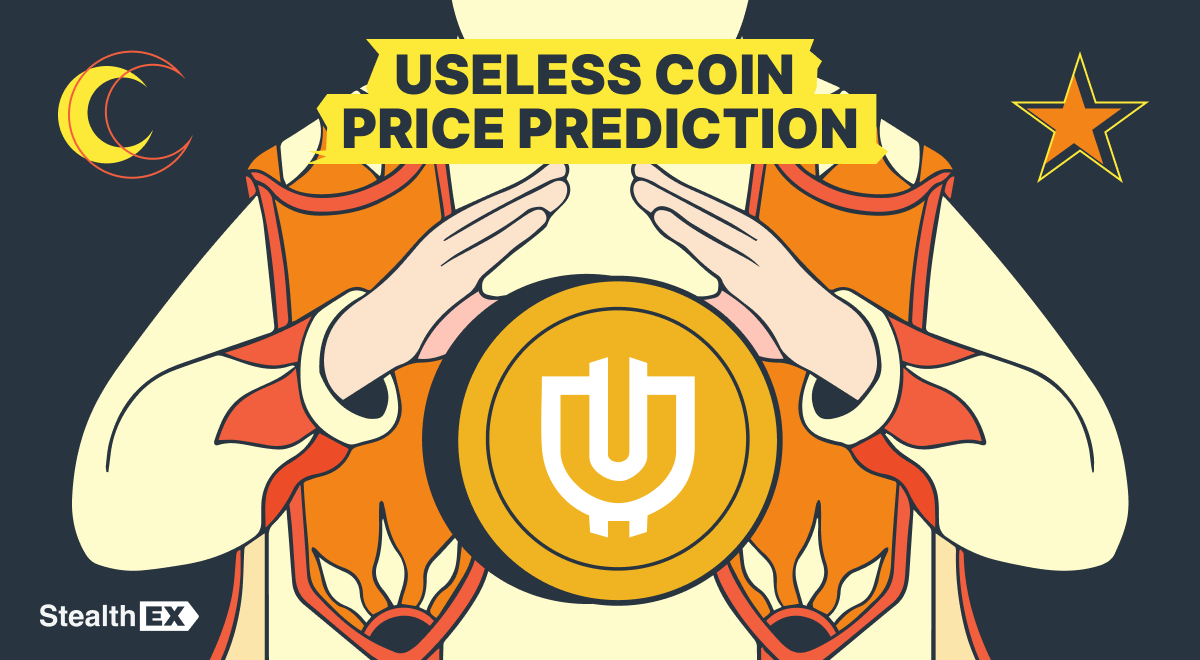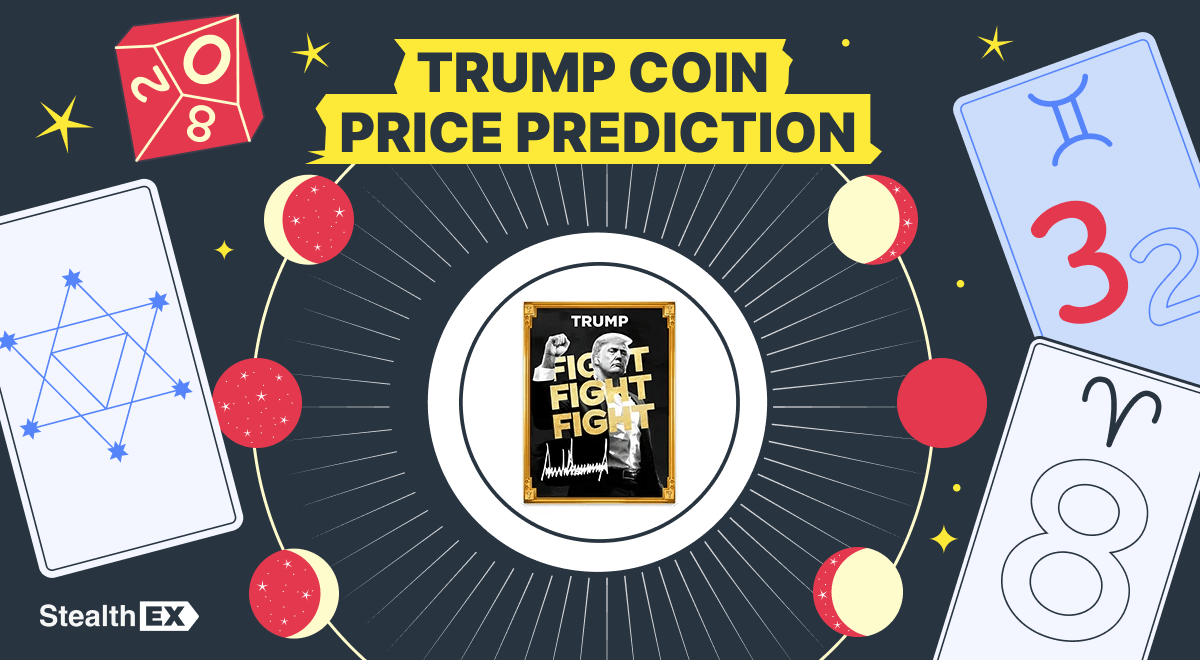Blockchain Oracles: Connecting the Worlds. Part 2

In the first part of this article we offered a thorough introduction on blockchain oracles and why they are vital to the decentralised space, along with several examples in the Decentralized Finance DeFi domain. However, DeFi is not the only fish in the sea, and there are other noteworthy use cases of blockchain oracles in the crypto space not associated with DeFi. This second and final part is dedicated to the application of blockchain oracles in other areas, and concludes with the challenges the technology faces and the techniques used to overcome them.

Oracles for prediction markets
Prediction markets are another area where the idea of blockchain oracles fits like a glove. Sometimes, they are also referred to as betting markets, but regardless of the naming convention, their concept revolves around wagering on the outcome of a real-life event. In these markets anyone can create and trade event outcomes, and since the outcomes require independent verification, there’s a job for a blockchain oracle as well to do the task in the most efficient and reliable manner.
As with DeFI, a few prominent players inhabit this space, and number one on the list is Augur (REP). It made a name for itself during the 2016 US presidential elections when it had reportedly attracted over $2 million of bets on the election outcome. The oracle of Augur is based on a trustless consensus of users who hold the platform’s native Reputation token. If they fail to deliver honest and accurate reports of outcomes, a split in the token may follow rendering their forked version of Reputation worthless as no one will sign up to their prediction markets in the future for false reporting. In this way, reporters are financially encouraged to provide accurate information on the outcomes of real-world occurrences.
A different approach to an oracle solution is employed by Gnosis (GNO), a decentralized prediction market platform, which came into the spotlight in 2017. With Gnosis, anyone can offer oracle services. Users creating a prediction market can select any oracle or a group of oracles for the event resolution. But that’s not all. If the market participants disagree with the resolution, they can challenge it by applying to the so-called Ultimate Oracle. Then, a new market is created to resolve the dispute by allowing anyone to decide on the outcome within 24 hours. The winners are rewarded, the losers are punished, and the outcome is used for the resolution of the primary market.
Augur and Gnosis were the first prediction markets platforms allowing users to forecast future events and bet on them. With Omen, an information market platform, users can specify the data source of their own choice to be used as an oracle, supplemented by an online dispute resolution platform Kleros as the final arbitrator. With Delphy, a social mobile prediction market platform, the winning outcome is determined by the so-called Oracle of the Event, for example, the NBA official website for the prediction of an NBA game, combined with a dispute arbitration mechanism in case such a dispute should arise.
Oracles for other domains
DeFi and prediction markets are the most notable use cases of blockchain oracles, and for due reasons. However, oracles also made inroads into other fields as diverse as supply chain tracking for querying geolocation data, lottery smart contracts for random number generation, insurance contracts for damage verification, flight statistics for ticket pooling, weather forecasts for calculating insurance premiums, and even retrieval of information about events on other blockchains. Below we describe a couple of such platforms that may be worth looking into from the oracle point of view.
So our next entry on the list of platforms that feature blockchain oracles is FOAM platform, which provides an alternative to GPS geolocation for an array of industries such as Internet of Things (IoT), supply chains, airlines, electrical grids, autonomous cars, mobile operators, or any other industry that relies on GPS. As before, we are interested in the platform’s approach toward implementing a data verification layer. FOAM is intriguing because it offers a hardware-based oracle solution. Basically, its Proof of Location protocol works similarly to GPS, but in a decentralized and fault-tolerant way through a user-run network of hardware radio beacons connecting to each other and synchronizing their clocks. This enables them to compute the distance between nodes and report fraud-proof location data.
We conclude our exemplary list of platforms that cannot live without an oracle with a decentralized insurance platform, Nexus Mutual, which aims at “bringing the mutual ethos of a community-based model back to insurance” by “creating aligned incentives through smart contract code on the Ethereum blockchain”. What interests us here, though, is not the art of high rhetoric and catchy slogans but the approach to damage verification. Given that there is a strong incentive to defraud the insurance pool, Nexus comes up with a consensus model of claim verification and requires claims assessors to have a stake in the form of membership tokens that would discourage them to act dishonestly. Otherwise, they are to suffer financially and have their member tokens burned without redemption.
The Oracle Problem
Smart contracts are poised to transform the ways that we humans interact in our business endeavors. To make our lives easier, blockchain oracles strive to close the gap between the isolated, pristine execution environment of a smart contract and the real world out there, full of chaos and madness. The large number of implementations making use of distinctively different concepts proves that there is no one-size-fits-all oracle solution. And this leads us to the infamous oracle problem.
The Oracle Problem refers to the innate adversarial and random nature of the external world and the formal logic of smart contract execution. Oracles necessarily lie outside the security mechanisms that a smart contract-enabled blockchain provides, and the conflict that arises is the essence of the Oracle Problem, that of the difficulty of fetching credible data from intrinsically unreliable sources, with malicious actors always on the lookout to modify and falsify the data for their financial gain.
Different approaches have been tried to solve this issue, for example, by using cryptographic attestations or putting one’s reputation on the line. However, as both theory and practice confirm, economic incentivization works best here. As more and more platforms shift to decentralized oracles, there is solid evidence that creating an incentive to report honestly along with a disincentive to prevent fraudulent broadcasting seems to be an effective way to encourage serious and thorough fact-checking in a consensus-based environment.
And remember if you need to exchange your coins StealthEX is here for you. We provide a selection of more than 250 coins and constantly updating the list so that our customers will find a suitable option. Our service does not require registration and allows you to remain anonymous. Why don’t you check it out? Just go to StealthEX and follow these easy steps:
✔ Choose the pair and the amount for your exchange. For example REP to GNO.
✔ Press the “Start exchange” button.
✔ Provide the recipient address to which the coins will be transferred.
✔ Move your cryptocurrency for the exchange.
✔ Receive your coins.
Follow us on Medium, Twitter, Facebook, and Reddit to get StealthEX.io updates and the latest news about the crypto world. For all requests message us via [email protected].
The views and opinions expressed here are solely those of the author. Every investment and trading move involves risk. You should conduct your own research when making a decision.
August 25, 2020
blockchain blockchain oracle decentralized finance DeFi internet of thingsRecent Articles on Cryptocurrency
 Useless Coin Price Prediction: Is USELESS Crypto a Good Investment?
Useless Coin Price Prediction: Is USELESS Crypto a Good Investment?  OFFICIAL TRUMP Coin Price Prediction: How High Will TRUMP Crypto Go?
OFFICIAL TRUMP Coin Price Prediction: How High Will TRUMP Crypto Go? 